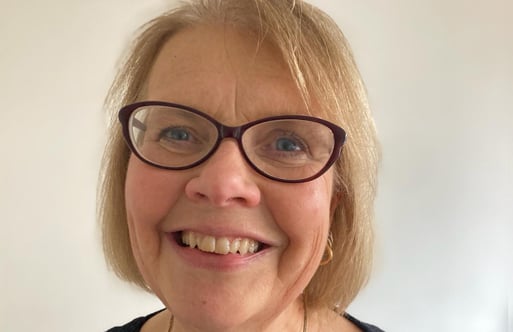September 2014 will see a new statutory computing curriculum for schools come into force in England. The new computing curriculum is about computer science and digital literacy, with computer science at its core. This will be the start of a computing education revolution that will affect over seven million pupils from age five to 16.
It is the start of a long journey over many years towards all schools becoming excellent at teaching computing. BCS is one of the key organisations working in close collaboration with the wider computing community that started this revolution and is working to make sure it is a long-term success for our children and for society as a whole. BCS, working as part of the wider community, helped draft the new curriculum on behalf of DfE, and we are helping now to implement it.
CAS, the Computing At School group, is a grassroots movement of over 9,000 members that is part of BCS, which exists to help teachers ensure every child has an excellent computing education. Joining CAS (which is free to IT professionals and teachers) is the best way to ensure that you can take an active part in supporting teachers in your area.
CAS and BCS run the Network of Teaching Excellence in Computer Science, which, through a DfE grant, aims to create, by September 2015, a national infrastructure for providing computer science CPD to teachers. The network is backed by over 70 university computer science and education departments in the UK including Cambridge, Manchester, Birmingham, Edinburgh and Imperial amongst many others.
BCS also runs a DfE funded scholarship scheme for trainee computing teachers. These £25k tax-free scholarships are awarded to people who have the potential to be the future leaders of the teaching profession. Our industry partners run the final interviews for the scholarships, which means they have a key role in awarding the scholarships. Our partners this year include Microsoft, BT, IBM, Google, HP, Toshiba, Morgan Stanley, Compare the Market, Ocado, and Metaswitch Networks amongst others.
Barefoot computing
In January 2014, the Institute received a grant from DfE for the Barefoot Computing project for primary schools. Barefoot will develop computing exemplification resources for primary schoolteachers. These will illustrate how progression can be enhanced across other subjects in the curriculum (such as literacy, maths and science, for example), by teaching computing.
They will focus on the computer science elements of the curriculum and will also equip teachers with the basic computer science subject knowledge and confidence needed to begin the journey towards becoming an excellent computing teacher. BCS is also working with the computing community and exam boards to ensure new Computer Science GCSEs provide the right computational thinking skills.
DfE look to BCS together with the Royal Academy of Engineering for expert advice on which Computer Science GCSEs should be included in the EBacc schools performance measure. The EBacc defines academic subjects DfE regard as of paramount importance, namely Maths, English, Science, Languages and the Humanities. Schools are measured on the number of students obtaining grade C or better in subjects from each of these categories (including two from science).
The EBacc is a key performance measure so it matters that computer science is included. The BCS expert panel report on computer science in the EBacc was influential in persuading DfE that computer science should be included in the EBacc.
Clearly introducing computing in schools is a very big task. So why go to all this trouble?
Understanding the world
There is clear evidence that children from primary school age enjoy doing computing, can understand supposedly difficult concepts such as algorithm or abstraction when they are explained in terms that they are familiar with, and by doing computing they develop intellectual skills that help them be better learners in other subjects such as English and maths.
It is a fundamental principle of education that it should help people understand how the world in which they live works. Computing in the 21st century underpins business, science, engineering, politics and even the day-today interactions we have with each other. There is then a strong educational case for introducing computing into the school curriculum from primary school.
There is also a very strong economic case. According to the Organisation for Economic Co-operation and Development (OECD) ‘your education today is your economy tomorrow’, which is especially true where computing is concerned. Employers are queuing up to tell people they can’t recruit the kind of high quality computer scientists they need.
Computer science also now underpins almost all advances in science and engineering. Those countries that are able to innovate are able to compete, which are those countries with an advanced education sector as explained by the OECD.
Barriers
The benefits of introducing computing education into schools are clear, but what are the barriers. Well they’re big, and only with the whole computing community working together will we overcome them. There are over 160,000 qualified primary schoolteachers and over 10,000 computing teachers in secondary schools who will be teaching the new curriculum.
Note, every primary schoolteacher is expected to be able to teach the whole primary curriculum including computing, unlike secondary schools where teachers specialise in a particular subject. From what we know of working with teachers there is a lot of enthusiasm for computing, whilst at the same time many of them are also nervous about how to teach computing, because it is essentially a new subject as far as schools are concerned.
The wording of the new curriculum is something that causes nervousness for many teachers who don’t have subject knowledge expertise in computing. When the curriculum was being developed, DfE were very clear that it should define only what a school subject discipline is, and it should not include anything about how it should be taught; that is it should be seen as a technical specification of the essential subject knowledge that defines what a discipline is.
Their view is very much that teachers are professionals who know best how to teach a subject, and there are subject knowledge expert groups that teachers should engage with rather than the DfE attempt to provide guidance about the new curriculum.
Guidance for teachers
Development of the computing curriculum was coordinated by BCS and the Royal Academy of Engineering on behalf of DfE, and is defined in terms of key computing ideas and concepts such as abstraction, simulation, data structures and algorithms. This terminology is unfamiliar to many teachers. That’s why CAS has provided extensive guidance for teachers about the new curriculum, and over 1,400 online resources that help teach computing in the classroom.
CAS in association with Naace (www.naace.co.uk) has also sent a printed copy of curriculum guidance to every single primary school in the country, thanks to sponsorship from Raspberry Pi and ARM. BCS, as part of the computing community, must work with teachers, both now and consistently over the long term, to make computing education excellent.
We must collaborate with the teaching profession so that computing in schools is inspirational, engages students of all abilities, and develops computational thinking skills that will help students succeed in life.
Sources
- Computing programmes of study: key stages 1 and 2 - National curriculum in England
- BCS Academy of Computing - teaching scholarships
- English Baccalaureate: information for schools
- Computer Science: A curriculum for schools
- The Computing at School Community
- Computing in the national Curriculum - A guide for primary teachers

















